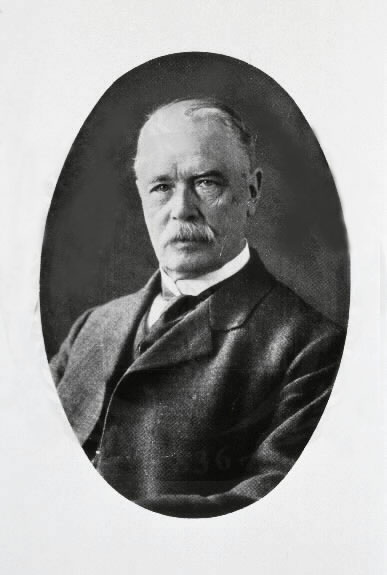 |
FRIEDRICH TRENDELENBURG (1802-1972) Friedrich Trendelenburg the son of the well known philosopher Friedrich Adolf Trendelenburg, was born in Berlin, at his time a world centre of medical science and teaching. Still, however, he chose to study medicine in Scotland, at the universities of Glasgow - a pupil of Allen Thomson (1809-1884) - and Edinburgh. He completed his studies in Berlin under Bernhard Rudolf Konrad von Langenbeck (1810-1887) and received his medical doctorate in 1866 with a dissertation on surgery in ancient India. He was later made doctor of honour at the University of Aberdeen, Scotland. During the years 1868 to 1874 Trendelenburg worked as an assistant at Langenbeck's clinic, and in 1874 received a senior position as medical director of the surgical station of the Friedrichshain hospital in Berlin. Already the following year he left Berlin to enter a position as professor of surgery in Rostock. Seven years later, in 1882, he assumed the same office in Bonn, and in 1895 succeeded Karl Thiersch (1822-1895) in Leipzig. In Leipzig he was entrusted with the position as surgeon-in-chief at the university clinic. He remained in Leipzig until his retirement in 1911. It was during his time as assistant to Langenbeck that Trendelenburg worked on stricture of the trachea. In Rostock he introduced gastrostomy in the treatment of oesophageal stricture, and in 1878 was the first surgeon to suture the patella in Germany. He first used his position for operating on viscera in 1881. Trendelenburg introduced an operation for varicose veins and in 1907 made an attempt at surgical removal of a thrombosis in a patient with pulmonary embolism. He lived to see his pupil, Martin Kirschner (1879-1942), perform the first successful embolectomy in 1924. He is also connected with a cannula/needle used for preventing patients from swallowing blood during operations of the larynx. Friedrich Trendelenburg was founder of the German Surgical Society in 1872, and was greatly interested in surgical history. He wrote an account of ancient Indian surgery as well as an autobiography. He died with a carcinoma of the mandible. Trendelenburg spent his last years in Nikolassee near Berlin. His son Wilhelm Trendelenburg (born 1877) was professor of physiology at the University of Innsbruck. |

